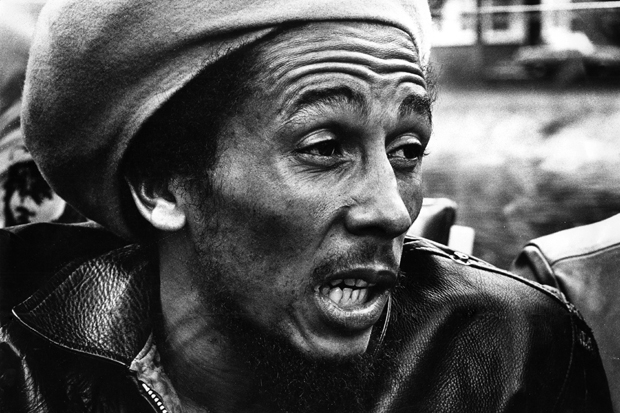There are many more than seven killings in this ironically titled novel — in fact very long — that starts off set in the Kingston, Jamaica, of the 1970s, amid an efflorescence of political violence. The two major parties, the right-wing Jamaica Labour Party and the left-wing People’s National Party, were pouring guns into West Kingston’s slums to create loyal voting ‘garrisons’, controlled by neighbourhood dons — because ‘who-ever win Kingston win Jamaica and whoever win West Kingston win Kingston’, as one of Marlon James’s characters explains. The CIA was siding with the JLP, or, as another character puts it, ‘squatting on the city, its lumpy ass leaving the sweat print of the Cold War’. In any case, ‘killing don’t need no reason’, the first continues (he’s very much involved in it all): ‘This is ghetto. Reason is for rich people. We have madness.’
The mini civil war had two collateral effects that form the basis of James’s plot. The first was that it entangled Bob Marley, after he tentatively lent support to the PNP and also continued to rub shoulders with dons of both factions (the novel has him as a passive, almost Christ-like emblem of an abortive peace movement; he is referred to only as ‘the Singer’). On 3 December 1976, carfuls of heavily armed men invaded Marley’s home and showered him and his entourage with bullets, failing through some miracle, or narcotised teenage ineptitude, to assassinate him. The second development was that certain Kingston ‘posses’ inevitably outgrew their political masters, went freelance and exploded into the cocaine trade on the US east coast — which is the setting for the second half of the novel.
Twelve characters, half of them Kingston gangsters, take it in turns to narrate chapters, from the successive vantage points of five specific days between 1976 and 1991.







Comments
Join the debate for just £1 a month
Be part of the conversation with other Spectator readers by getting your first three months for £3.
UNLOCK ACCESS Just £1 a monthAlready a subscriber? Log in